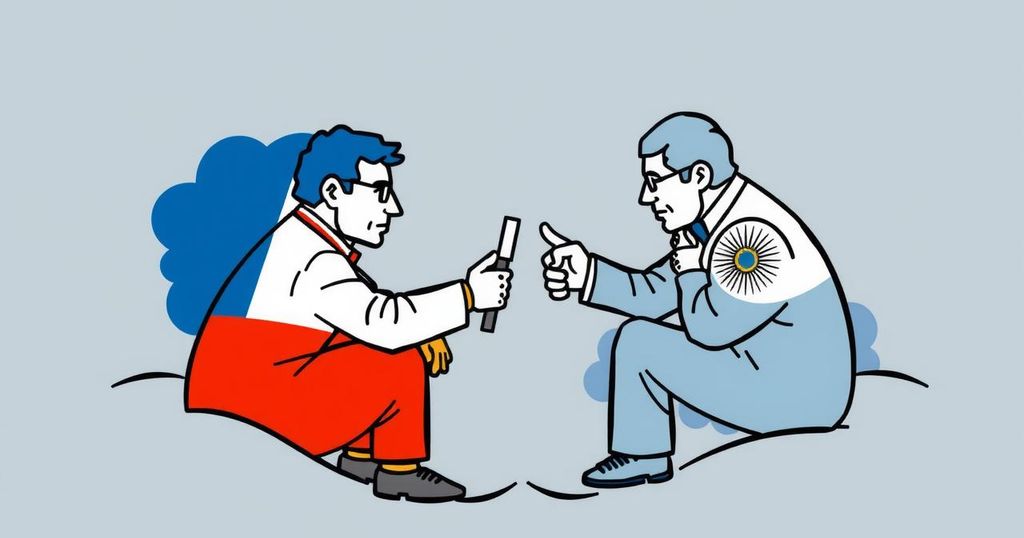Pope Francis commemorated the 1984 Treaty of Peace and Friendship between Chile and Argentina, emphasizing the importance of dialogue in preventing conflict. During the ceremony, he urged nations to emulate the spirit of cooperation demonstrated by the two countries. He criticized the hypocrisy of nations advocating for peace while investing in arms and called for collective efforts to address contemporary global challenges, invoking blessings for peace upon all nations.
On November 29, 1984, Chile and Argentina formalized a significant Treaty of Peace and Friendship, effectively resolving a longstanding border dispute over the Beagle Channel that had nearly led to armed conflict in 1978. This treaty, which enhanced stability in South America, was facilitated by the Holy See, with Pope St. John Paul II playing a pivotal role as mediator. Recently, a commemoration event hosted by the Embassies of Chile and Argentina at the Vatican brought together Pope Francis, Cardinals, and members of the Diplomatic Corps to honor this historical agreement.
During this ceremony, Pope Francis underscored the importance of dialogue and cooperation between nations in addressing contemporary global conflicts. He stated that the exemplary dedication displayed by Chile and Argentina during their negotiations served as a model worthy of emulation. The Holy Father’s reflections reiterated the significance of peace and friendship as foundational principles for resolving disputes, emphasizing their relevance in the face of current global challenges.
The Pope highlighted the ongoing issues of injustice, violence, and inequality fueling global conflicts today. He stressed the necessity of fostering relationships based on divine and neighborly friendship to plant the seeds of peace, demonstrating that such connections surpass temporal achievements. He remarked, “It is friendship with God, which is then reflected in all other human relationships; that is the foundation of the joy, which will never fail.”
Moreover, Pope Francis reflected on the recent joint statement made by the Bishops of Argentina and Chile, expressing gratitude to God for averting war and called for collective initiatives addressing pressing social and environmental challenges. He expressed a hope that the spirit of cooperation and peace could proliferate across nations, particularly within Latin America, where many crises persist.
The Holy Father further lamented the irony he perceives in countries advocating for peace while investing heavily in weaponry, stating, “This hypocrisy always leads us to failure. The failure of fraternity, the failure of peace.” He concluded his address by invoking divine blessings for peace-seeking nations, particularly Argentina and Chile, under the patronage of Mary, Queen of Peace.
The 1984 Treaty of Peace and Friendship between Chile and Argentina marked a critical turning point in South American diplomatic relations, resolving a border conflict that had escalated to a near-war situation. The Holy See’s involvement in mediating this dispute highlights the significant role religious diplomacy can play in conflict resolution. The commemoration of the treaty not only serves as a reminder of its historical importance but also emphasizes the ongoing relevance of dialogue in resolving contemporary global issues.
In summary, Pope Francis’s recent address at the Vatican highlighted the success of the Treaty of Peace and Friendship between Chile and Argentina as a timeless model for peaceful negotiation. His emphasis on the necessity of dialogue and the rejection of violence resonates with current global challenges, urging nations to prioritize genuine relationships and cooperative solutions. The Pope’s admonition against hypocrisy in the pursuit of peace underscores the complexities facing today’s geopolitical landscape, while his invocation for divine guidance reflects a hopeful vision for a more peaceful world.
Original Source: www.vaticannews.va







